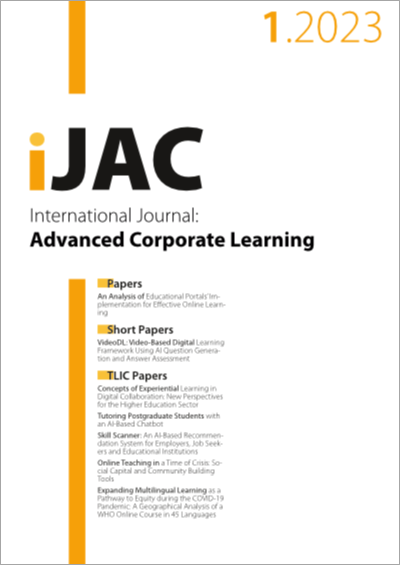Online Teaching in a Time of Crisis
Social Capital and Community Building Tools
DOI:
https://doi.org/10.3991/ijac.v16i1.35255Keywords:
Distance Education, Online Engagement, Community BuildingAbstract
We draw on Bourdieu's work on the sociology of education and introduce the idea of building social capital and community in the often misunderstood, one-sided narrative of online learning, which is seen as both an isolated and isolating experience. We also look at educational praxis, which is "informed, committed action," to address socially differentiated educational attainment, which is perceived to be more pronounced in online learning. To investigate this, we perform a narrative analysis of qualitative data from student evaluations of three online asynchronous courses taught within the past two years, where we introduced regular synchronous sessions. Our findings indicate that synchronous sessions, especially during the pandemic, were perceived by students as a cornerstone of a pedagogy of care. Further, the data suggest that these sessions work better than fully asynchronous courses for students prone to lower educational attainment due to uncontrollable conditions (e.g., socio-economic status, race) because of the additional layer of support. Finally, our findings indicate that these sessions represent one effective way for students to build social capital and community in courses that are otherwise fully asynchronous.
Downloads
Published
How to Cite
Issue
Section
License
Copyright (c) 2023 Roxana Toma, Matthew Berge

This work is licensed under a Creative Commons Attribution 4.0 International License.


